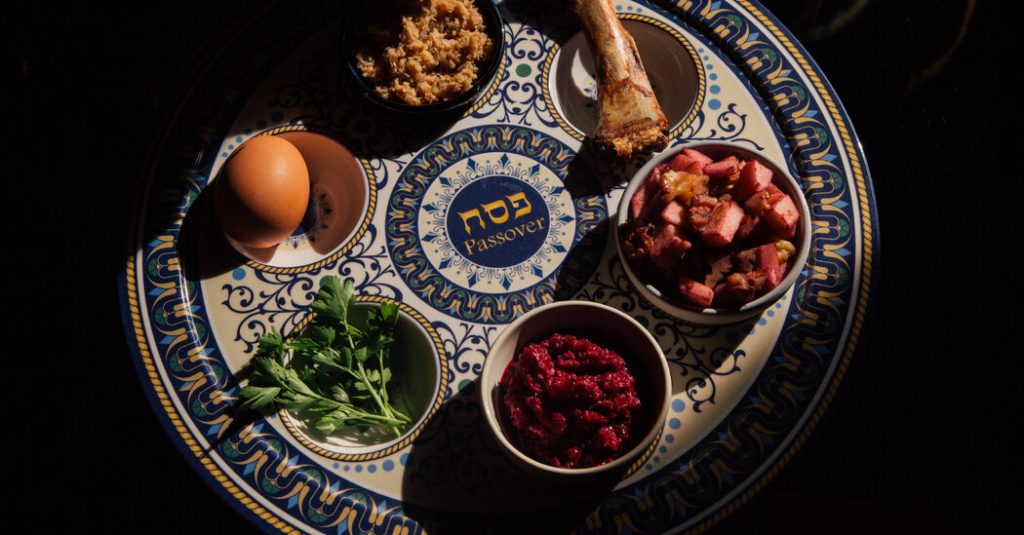This week, as Passover began, the impact of the Israel-Hamas war was strongly felt at Seders across the country. Families and friends gathered for the holiday, but instead of the usual festive atmosphere, many found themselves grappling with the somber reality of the conflict. Empty chairs were left in remembrance of hostages, guest lists were carefully curated to avoid contentious debates, and traditional rituals took on new significance. Many felt that the Seder table was the perfect place for engaging in difficult conversations about freedom, captivity, and the current situation in Gaza.
For some, the tension of the moment was palpable as they tried to navigate the sensitive topics that were inevitably brought up during the holiday. A young woman noticed her parents’ stress over hosting a Seder for fear of political debates, while others struggled to balance the connection between Passover themes of liberation and the oppression seen in current events. Dialogue was messy, and some guests felt as though they were walking on eggshells, trying to find common ground.
While some families chose to focus solely on the customs and rituals of the holiday to find solace, others chose to adapt old traditions to reflect the somber reality of the conflict. Empty chairs and symbolic gestures were made in remembrance of hostages, and emotional moments arose during Seders as guests read the names of those affected. The generational divide was apparent in some gatherings, with differing opinions sparking heated discussions but ending in mutual respect and a desire for understanding.
Debates and discomfort were unavoidable at many Seders, as families grappled with differing opinions on the conflict in Israel and Gaza. Some chose to skip passages in their Haggadah that felt dissonant with current events, while others embraced the opportunity for dialogue. The age-old tradition of questioning and challenging opinions was alive and well, with heated discussions ultimately leading to learning and growth. The Jewish way, as many saw it, was to ask questions, engage in conversations, and ultimately educate oneself on important issues.
Overall, this year’s Passover Seders were marked by a blend of traditional rituals and nuanced discussions surrounding the ongoing conflict in Israel and Gaza. Families and friends came together to address the elephant in the room, adapting old customs and traditions to reflect the poignant reality of the moment. While tensions were high and debates were heated, many found solace in the opportunity for dialogue and the chance to engage in meaningful conversations about freedom, captivity, and peace. The Seder table, typically a place of celebration and reflection, became a platform for grappling with complex emotions and seeking understanding amidst difficult times.


